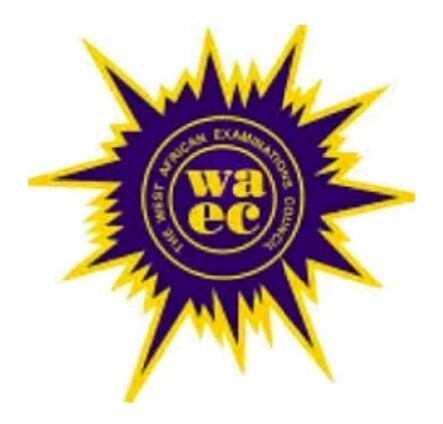To excel in your upcoming Food and Nutrition examination, it is crucial to familiarize yourself with the WAEC Food and Nutrition syllabus.
This comprehensive guide will not only outline the topics you need to study but also provide valuable notes and exam formats to enhance your preparation.
Just as an agricultural farmer needs tools to be productive, studying the syllabus is essential for your exam success.
List of Key Topics in WAEC Syllabus for Food and Nutrition 2024/2025
Aims and Objectives The primary objectives of the Food and Nutrition syllabus are as follows:
- Acquire fundamental knowledge about foods and nutrition.
- Understand the relationship between nutrition and health.
- Identify career opportunities in the field of food and nutrition and develop skills for further studies.
- Apply general principles in meal planning, selection, preparation, and serving of food for different occasions.
- Comprehend the importance of planning an efficient and safe kitchen.
- Learn to choose, use, care for, and store kitchen equipment effectively.
- Emphasize the significance of kitchen sanitation in food preparation and service.
- Gain basic knowledge in consumer education.
- Develop research skills and utilize information to experiment, innovate, and enhance local dishes.
- Acquire the necessary skills to set up a food-related business.
Scheme of Examination The Food and Nutrition examination consists of three papers: Papers 1, 2, and 3. All three papers are compulsory.
- Paper 1: This is a multiple-choice paper comprising 60 questions to be answered within 1 hour for a total of 60 marks.
- Paper 2: This paper includes six essay questions, of which candidates must answer four. It carries 40 marks and lasts for 1 hour and 15 minutes.
- Paper 3: This is a practical test conducted over a duration of 3 hours. A visiting examiner will evaluate this paper, which carries 100 marks.
WAEC Food and Nutrition Syllabus Overview
-
Nutrition and Health:
- Introduction to Foods and Nutrition
- Careers associated with Foods and Nutrition
- Basic Food Nutrients
- Meal Management
- Meal Planning
- Special Nutritional Needs
-
Food Laboratory and Equipment:
- The kitchen
- Kitchen equipment and tools
- Safety in the kitchen
- Sanitation in the kitchen
-
Food Commodities:
- Animal and animal products (milk, cheese, yoghurt, eggs, meat, poultry, fish, etc.)
- Cereals/grains
- Fruits and vegetables
- Legumes and oily seeds
- Fats and oils
- Starchy roots and plantain
-
Food Storage and Preservation:
- Food spoilage
- Food preservation
- Food storage
-
Food Preparation:
- Principles underlying cooking
- Methods of cooking
- Transfer of heat
- Cooking terms
- Food additives
- Flour Cookery and Confectionery
- Types of flour
- Basic ingredients in Flour cookery
- Raising agents
- Batters and doughs
- Cakes
- Pastries
- Yeast Mixtures
- Cake Decoration
- Icing
-
Beverages:
- Classification of beverages
- Importance of beverages
- Principles underlying beverage preparation
-
Convenience Foods:
- Types of convenience foods
- Selection and uses of convenience foods
- Advantages and disadvantages of using convenience foods
- Preparation of dishes using convenience foods
-
Rechauffe (Leftover) Foods:
- Explanation
- Importance of using leftover goods
- Rules/guidelines for using leftover foods
- Rechauffé dishes
-
Festive Dishes/Special Occasion Dishes:
- Explanation
- Occasions for festive dishes
- Types of festive dishes/special occasion dishes
- Preparation of festive dishes/special occasion dishes
-
Art of Entertaining:
- Entertainment
- Table setting and etiquette
- Meal Service Style
-
Experimental Cookery:
- Research into Local dishes and Drinks
- Experiments
-
Consumer Education:
- Consumer Education
- Food Budgeting
- Food Purchasing
-
Self Employment:
- Setting up and managing a catering enterprise
- Work ethics
- Packaging
FAQs
What topics are covered in the WAEC 2024/2025 Food and Nutrition syllabus?
The WAEC syllabus for Food and Nutrition 2024/2025 covers a variety of topics designed to equip students with knowledge of nutrition, food science, and meal planning. Key areas include:
- Basic principles of nutrition: Nutrients, food sources, and their functions.
- Food preparation techniques: Cooking methods, food preservation, and hygiene.
- Meal planning: Planning meals for different age groups, special diets, and food budgeting.
- Food safety: Contamination, foodborne diseases, and kitchen safety.
- Food science: The study of the physical, chemical, and biological components of food.
How can students access the WAEC Food and Nutrition syllabus for 2024/2025?
Students can access the official WAEC Food and Nutrition syllabus for 2024/2025 through the following ways:
- WAEC official website: Visit the WAEC portal (www.waecdirect.org) to download the syllabus.
- School guidance: Most schools provide the syllabus to students preparing for WAEC exams.
- Educational platforms: Online study platforms may also offer downloadable versions of the syllabus, alongside study resources.
How important is the WAEC Food and Nutrition syllabus for exam preparation?
The WAEC Food and Nutrition syllabus is crucial for exam preparation because:
- Guided learning: It outlines all the essential topics, helping students focus on what is required for the exam.
- Exam format: The syllabus gives insight into the structure of the exam, including practical and theoretical components.
- Assessment objectives: It provides a clear understanding of how students will be evaluated, allowing them to align their study efforts accordingly.
Conclusion
The WAEC Food and Nutrition syllabus equips students with essential knowledge and skills in the field of food and nutrition.
By following this syllabus, you will gain a comprehensive understanding of nutrition, food preparation techniques, kitchen safety, and consumer education






